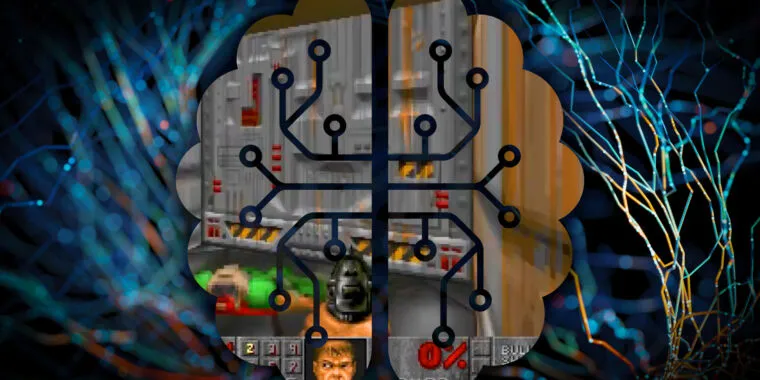New AI model can hallucinate a game of 1993’s Doom in real time
New AI model can hallucinate a game of 1993’s Doom in real time

New AI model can hallucinate a game of 1993’s Doom in real time

New AI model can hallucinate a game of 1993’s Doom in real time

New AI model can hallucinate a game of 1993’s Doom in real time

You are completely missing what I'm saying.
I know the input doesn't alter the model, that's not what I mean.
And "general" models are only "general" in the sense that they are massively bloated and still crap at dealing with shit that they weren't trained on.
And no, "comprehending" new concepts by palette swapping something and smashing two existing things together isn't the kind of creativity I'm saying these systems are incapable of.
What kind of creativity are you talking about then? I've also never heard of a bloated model. Which models are bloated?
Bloated, as in large and heavy. More expensive, more power hungry, less efficient.
I already brought it up. They can't deal with something completely new.
When you discuss what you want with a human artist or programmer or whatever, there is a back and forth process where both parties explain and ask until comprehension is achieved, and this improves the result. The creativity on display is the kind that can unfold and realize a complex idea based on simple explanations even when it is completely novel.
It doesn't matter if the programmer has played games with regenerating health before, one can comprehend and implement the concept based on just a couple sentences.
Now how would you do the same with a "general" model that didn't have any games that work like that in the training data?
My point is that "general" models aren't a thing. Not really. We can make models that are really, really big, but they remain very bad at filling in gaps in reality that weren't in the training data. They don't start magically putting two and two together and comprehending all the rest.
Do you have any examples of how they fail? There are plenty of ways to explain new concepts to models.
https://arxiv.org/abs/2404.19427 https://arxiv.org/abs/2406.11643 https://arxiv.org/abs/2403.12962 https://arxiv.org/abs/2404.06425 https://arxiv.org/abs/2403.18922 https://arxiv.org/abs/2406.01300
In a couple sentences? In a way that doesn't approach, equal or exceed the effort of training the model with that data to begin with?
You insist these models can do new things out of nothing, and you keep saying "all you have to do, is give them something".
You keep moving the goal posts and putting words in my mouth. I never said you can do new things out of nothing. Nothing I mentioned is approaching, equaling, or exceeding the effort of training a model.
You haven't answered a single one of my questions, and you are not arguing in good faith. We're done here. I can't say it's been a pleasure.
My argument was and is that neural models don't produce anything truly new. That they can't handle things outside what is outlined by the data they were trained on.
Are you not claiming otherwise?
You say it's possible to guide models into doing new things, and I can see how that's the case, especially if the model is a very big one, meaning it is more likely that it has relevant structures to apply to the task.
But I'm also pretty damn sure they have insurmountable limits. You can't "guide" and LLM into doing image generation, except by having it interact with an image generation model.